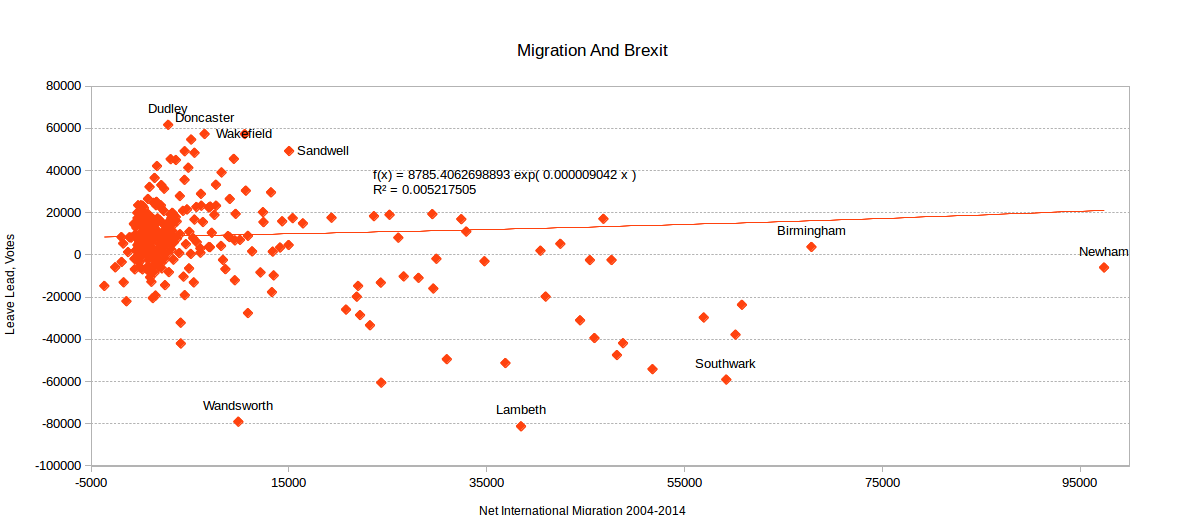Chuka Umunna is apparently off to Boston, Lincolnshire to understand Brexit. He should save himself the journey. You can understand Boston really well from the simple fact that it has elected a Labour MP – indeed anything other than a Conservative – precisely once in history, immediately after the First World War. It’s really conservative. This should be simple. If any political party should worry about it, it’s the Tories. It’s their seat!
But there’s a weird kind of tourist industry in going there to look for the Very Real Concerns. John Harris seems to be there every other week. I suspect it may be something to do with the fact it’s really conservative big-farm country, and hence it’s easy to find copy-generating racists, and that it’s not actually that far from King’s Cross station, and therefore a reporting trip there is both practical and cheap.
Also, if you were to ask my dad the ex-immigration officer, you’d learn that immigrants certainly didn’t start showing up there one day in 2004; for many years before that, there was a specific carve-out of the rules for seasonal farm workers going there. Immigration there isn’t new; it’s probably as old as the engineering interventions that made it farm-able just after the civil war. A 70s Cambridge Marxist might have made something of that, but nobody imagines UKIP voters in Boston spend their spare time reading Christopher Hill.
I have a less snarky point, though. Boston voted for Brexit by the highest percentage in the country. This has a lot to do with the fact not many people live there. The Economist is very pleased with the insight that although it doesn’t have that many immigrants, the percentage increase is large. This has a lot to do with the fact that not many people live there and not that many immigrants choose to live there.
Consider the following chart. I’ve plotted the population change due to immigration against the Leave lead in votes. Referendums aren’t population weighted – it profits you not to win Skye by 90% but lose Haringey by 1%, in much the same way that piling up votes in safe seats doesn’t help you win a parliamentary election. Also, I’ve started the clock in 2004, the year VRC fans reckon it all went wrong.
Note that when you take into account how many votes they actually delivered, the Fenland outliers just vanish. They’re just not very important. Think about it; who ever won a general election fighting hyper-safe Tory seats in the Fens?
On the other hand, look at Dudley, which delivered 61,666 net Leave votes all on its alone-io, more than anywhere else in the country. Dudley has about four times the population of Boston, and delivered about three times the net Leave vote. We could look at Doncaster, or Wakefield, or Sandwell. Wakefield has the same level of immigration in that timeframe as Wandsworth, but it was about a third more Brexity. Lambeth had four times as many immigrants as Wandsworth, but it was just as Remainy.
Sandwell! That’s next door to Dudley. From a Labour point of view, we seriously failed in the West Midlands in 2015 and that was probably why we didn’t win. It looks like that’s why we failed to prevent Brexit. Whatever the man who wants “Decent funky house and no trash” – don’t we all – is up to, his time would be better used in Birmingham.
Referendums, like elections, are won where the net votes are. Labour isn’t going to take Boston or Wokingham, we probably shouldn’t care about that, and we shouldn’t trade winnable seats for forlorn hopes.

I’m much more concerned about Chuka’s claim, just after the referendum, that the British people had clearly said that they wanted more controls on immigration. Perhaps it is what he wanted to hear rather than what the referendum question was about.